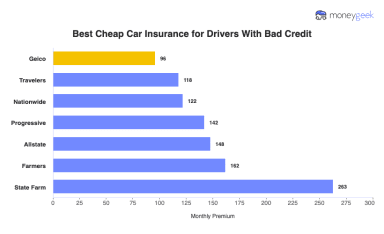Among full coverage options, MMG offers a $664 yearly rate, which works out to $55 a month and comes in 33% below the state average based on MoneyGeek's analysis of major insurers.
GEICO charges $790 a year, which is $126 more. Safety and MAPFRE both charge near $839 annually. Vermont Mutual charges $846. MMG's lower rate saves you money long-term.











